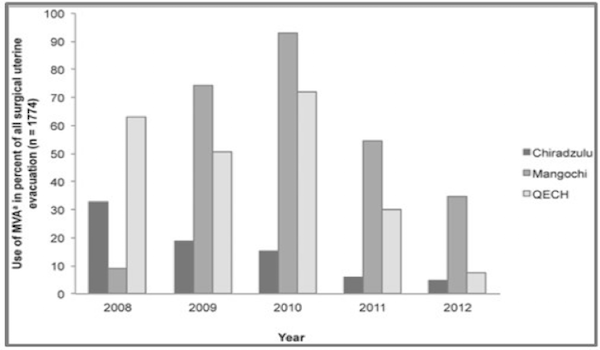
by Sinead Cook, Bregje de Kok, Maria Lisa Odland
Health Policy & Planning 2017;32(3) April
Abstract
Unsafe abortions are an important contributor to Malawi’s maternal mortality and morbidity… Post-abortion care (PAC) aims to reduce adverse consequences of unsafe abortions, in part by treating incomplete abortions. Although global and national PAC policies recommend manual vacuum aspiration (MVA) for treatment of incomplete abortion, usage in Malawi is low and appears to be decreasing, with sharp curettage being used in preference. There is limited evidence regarding what influences rejection of recommended PAC innovations. Hence… this qualitative study aimed to investigate factors contributing to the limited and declining use of MVA in Malawi. Semi-structured interviews with 17 PAC providers in a central hospital and a district hospital indicate that a range of factors coalesce and influence PAC and MVA use in Malawi. Factors pertain to four main domains: the system (shortages of material and human resources; lack of training, supervision and feedback), relationships (power dynamics; expected job roles), the health workers (attitudes towards abortion and PAC; prioritization of PAC) and the innovation (perceived risks and benefits of MVA use). Effective and sustainable PAC policy must adopt a broader people-centred health systems approach which considers all these factors, their interactions and the wider socio-cultural, legal and political context of abortion and PAC. The study… provided insights into rejections of innovations in a low-middle income country perspective.
GRAPH from a 2014 PLOS One study



